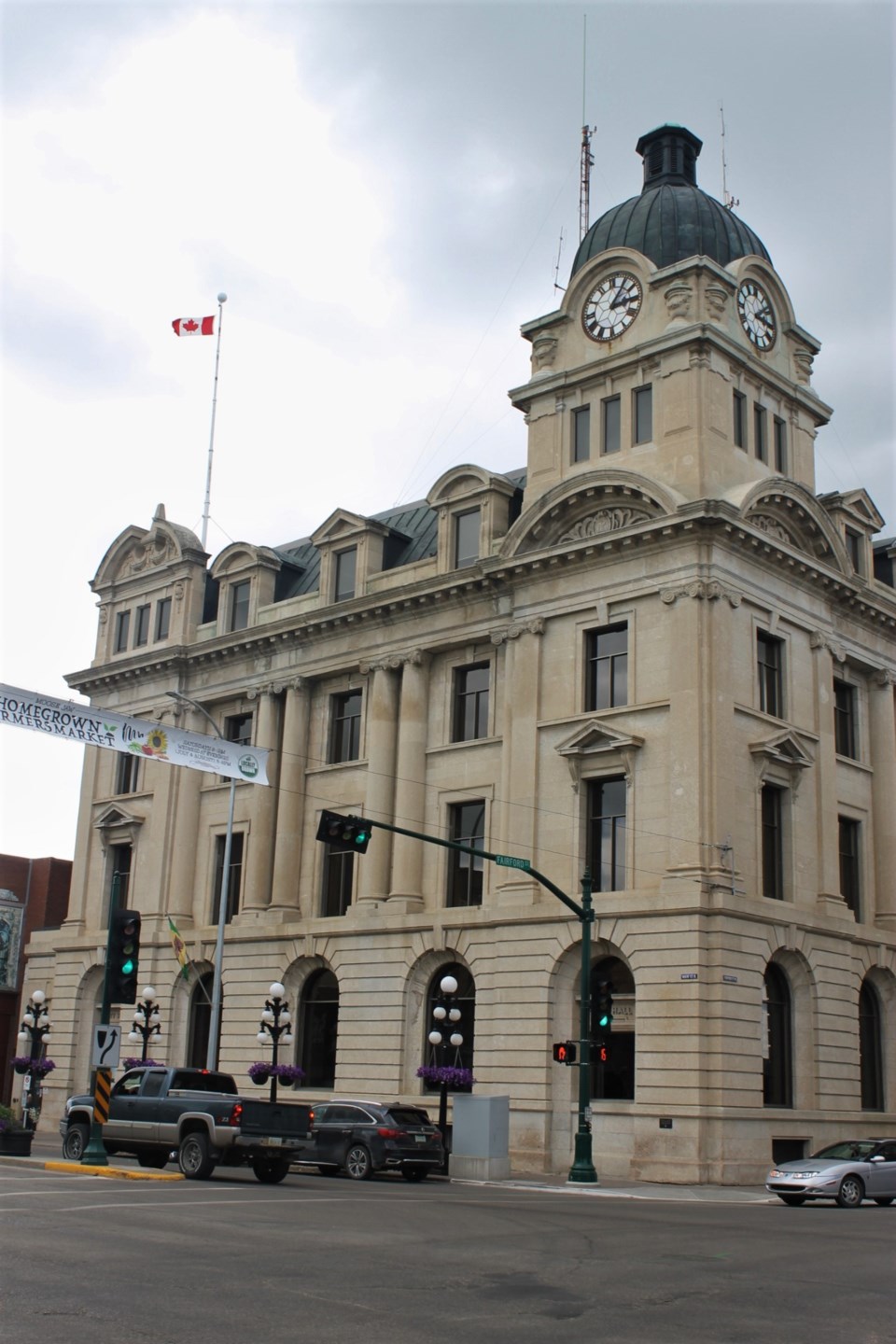City hall is partnering with the police on a pilot project to pursue additional security patrols downtown to combat an increase in problematic occurrences in municipal venues and green spaces.
During its recent executive committee meeting, city council voted 6-1 to authorize city administration to conduct a four-week pilot program of enhanced patrols and produce a report with statistics about the program for the 2023 budget deliberations.
Coun. Kim Robinson was opposed.
The recommendation becomes official once council approves it as a motion during the next regular meeting.
Project details
The pilot project is similar to the Saskatchewan Community Safety Officer Program (SCSOP), which assists officers by providing extra uniformed personnel in a marked vehicle in the community from early evening to early morning.
Pilot project details include:
- Commissionaires at existing municipal venues would remain
- Hours would be 8 p.m. to 4 a.m., seven days a week, but could be flexible enough to respond to issues on certain days
- The police would provide logistical support, training, vehicles and radio equipment
- City hall would provide $12,000 for the two extra staff that comes from the existing budget for commissionaires and city manager’s special initiatives budget
The data collected would include the number and type of incidents, whether there are reduced calls for service to police, and whether there are reduced requests for assistance from residents and city staff.
Unsettling incidents
“We’ve had a marked increase in unsettling incidents in the community. People are feeling somewhat unsafe,” city manager Jim Puffalt said.
“We know our staff has been dealing with a number of different issues in facilities and parks that we maintain. We know the police are (also) having issues with the areas they are patrolling.”
Puffalt and the director of parks and recreation recently met with the police chief to discuss the incidents. They agreed that there aren’t enough resources on the streets and that the police can’t be everywhere all the time. However, commissionaires could provide extra help because they already monitor public buildings.
The group concluded that a pilot program of enhanced patrols was the best option.
North Battleford piloted the SCSOP in 2015-16, where commissionaires took the pressure off police by taking on extra duties, said Puffalt. These individuals drove around in marked vehicles, acted as deterrents to crime, notified RCMP of incidents and enabled police to focus on high-risk crime.
“Those people are not police officers (and) they would not engage with high-risk people. It would be surveillance and patrols … ,” he continued. “If something is occurring and people feel unsafe, the commissionaires would have a procedure that is defined by the Moose Jaw Police Service on how to manage those affairs.”
He added that the program would likely begin in November because of the four-week delay in training people, the need to acquire police resources and the need for council approval in October.
Council discussion
“I’ve heard from a lot of businesspeople about (how) we need this,” said Mayor Clive Tolley. “I’m fully supportive of this effort to try and see if we can have more presence and deter some of the behaviours that are happening.”
Coun. Crystal Froese also thought this was a great initiative but wanted the police chief to attend the next council meeting to discuss the training and expectations of the partnership.
Four weeks for a pilot project seemed short to Coun. Heather Eby, while she wasn’t sure if the cold weather would deter problematic behaviours seen in the summer. However, she thought this was a good first step and hoped the commissionaires remained at the library since she didn’t want that location left vulnerable.
“… really, I hope that this (program) will make a change in our community,” she added.
The intent would be to extend the commissionaires’ hours at the library to ensure adequate coverage, said Puffalt. The first support request came from the library because it regularly handles people warming up inside.
“It is a deterrent. It’s not going to fix all the problems, but it helps to create that sense of security,” he added, “that there’s people out there watching.”
The next executive committee meeting is Tuesday, Oct. 11.




